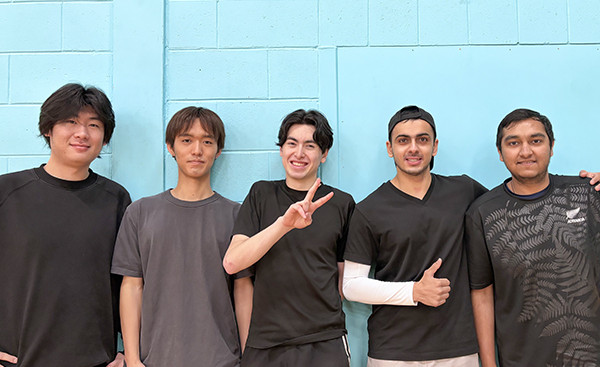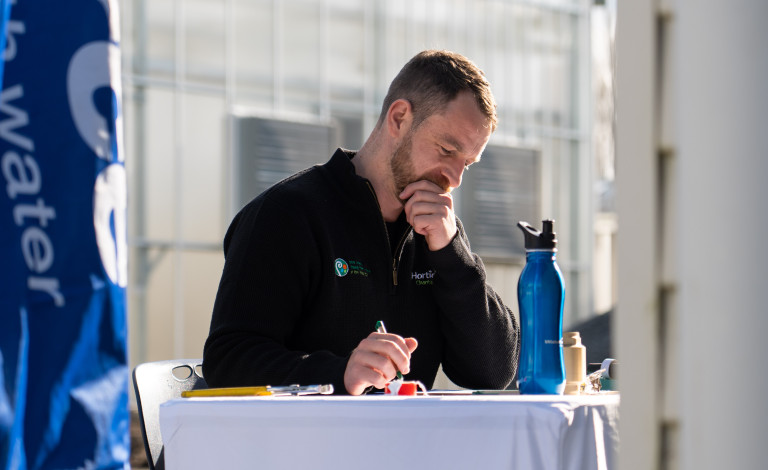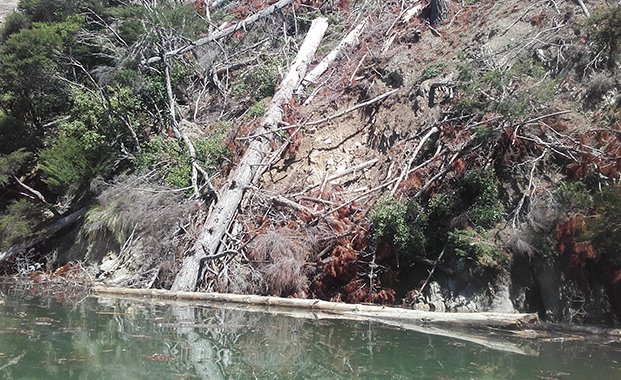3MT skills already helping PhD student connect with industry
20 September 2024 | News
The skills Lauren Jones honed for Three Minute Thesis are already paying off.
The Agricultural Science PhD student won second place at the recent Three Minute Thesis (3MT) finals with her concise presentation about the effect of phosphorus fertiliser application on lucerne pastures.
She found the competition has changed the way she speaks to industry professionals and to a crowd.
3MT challenges postgraduate students to present their research in just three minutes with a single slide, forcing them to simplify their work and make it understandable to a general audience.
For Lauren, that meant focusing on a single chapter of her thesis and cutting out anything she deemed too technical.
Lauren works as a teaching fellow at Lincoln, so the challenge was not unfamiliar to her.
“When you teach, you’re teaching to people who are new to it. You get really good at simplifying your work.”
In her three minutes, Lauren taught the audience about lucerne, a high protein and drought resistant sheep and beef pasture plant and how it was tied to phosphorus use.
“Farms have always just applied phosphorus at a standard rate, but there is limited research on how much you actually need.”
Phosphorous polluted waterways by causing algal blooms, which removed oxygen from the water.
In her role she often had to explain her research to generic audiences.
“It was really good to do. Now at conferences or when I’m talking to farmers I can simplify my work without all the high-level science.
They don’t want to hear all the science jargon, they want to hear the production side of it.
For the last three years she had been studying the effects of stress on lucerne, determining what level of phosphorus fertiliser was necessary with the smallest economic and environmental impact.
“How can you have a sustainable system and a system that’s economically viable?”
The process to determine that was far more complicated than could be expressed in three minutes, but that meant she had to get practical about explaining her work.
“We do about 10 different field measurements every week.
“From that we put it into the computer model and we see how well its predicting growth for that week, and then we analyse that.
“Obviously modelling is really complicated and technical, but for the competition we just went surface level.”
“I wrote down everything I did, then tried to remove any word I classed as jargon,” she said.
“I practised in front of my friends and family, who have a limited idea on what I do. They’re not all agricultural. I got them to highlight the points that they didn’t understand.”
After four or five different testing phases the presentation was jargon-free and ready for the competition, but she still had to practice.
Lauren was presenting on home turf, as she had lectured in the theatre before, but still went in during the semester break to ensure her speech would be like muscle memory.
“You’ve got to know it off the back of your hand, so if there’s any noises or anything they can’t trip you up.
“I’ve been practicing a lot so I was pretty stoked to get second.
“I have to public speak a lot for what I do, but that doesn’t necessarily mean I enjoy it. This has made it a lot easier to explain what I do to people.”


